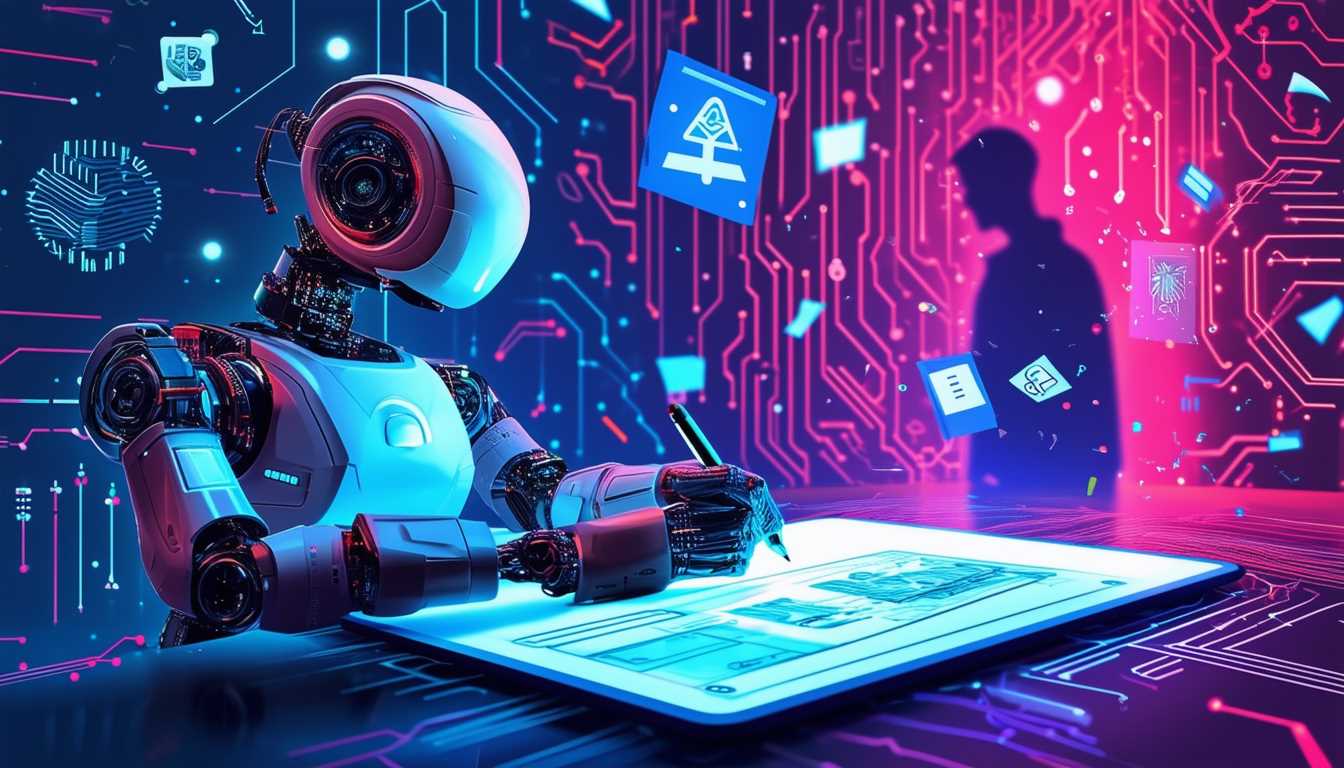In today’s digital age, the integration of AI for UI/UX design is not just a trend; it’s a revolution. As technology advances, the way we design and interact with user interfaces is evolving rapidly. For digital creators, understanding and leveraging AI can make a significant difference in creating engaging and intuitive user experiences.

Understanding AI in UI/UX Design
The role of AI in UI/UX design is both transformative and expansive. By incorporating AI, designers can create more personalized and dynamic experiences for users. AI algorithms can analyze user behavior, predict preferences, and even suggest design elements that resonate with the target audience.
Why AI is Essential for Modern Design
AI is essential in modern design because it offers precision and efficiency. It reduces the time spent on repetitive tasks and allows designers to focus on creativity and innovation. With AI tools, designers can automate processes such as prototyping, testing, and even content generation.
Personalization through AI
One of the most significant advantages of using AI in design is its ability to offer personalized experiences. By analyzing data, AI can tailor the user experience to meet individual needs, enhancing user satisfaction and engagement.
AI in User Interface Design
AI can help in creating adaptive interfaces that change based on user interaction. This adaptability ensures that users have a seamless experience, no matter how they interact with the application or website.
AI Tools for UI/UX Designers
There are several AI tools available that can aid UI/UX designers in their projects. Tools like Sketch, Figma, and Adobe XD are now incorporating AI features that help streamline the design process.
Sketch and AI Integration
Sketch has introduced features that use AI to enhance design capabilities, making it easier for designers to create and iterate designs efficiently.
Figma’s AI Features
Figma offers AI-driven features that help in real-time collaboration and design iteration, making it a favorite among designers who work in teams.
Adobe XD and AI
Adobe XD has integrated AI to provide designers with powerful tools for creating responsive designs that adapt to different screen sizes and user preferences.
Challenges and Considerations
While AI for UI/UX design offers numerous benefits, it also comes with challenges. Designers must ensure that AI is used ethically, respecting user privacy and data security.
Data Privacy Concerns
As AI relies heavily on data, ensuring that user data is protected and used responsibly is crucial in maintaining trust and compliance with regulations.
Ethical Design Practices
Designers must be aware of the ethical implications of AI in design, ensuring that AI-driven solutions are fair, unbiased, and transparent.
The Future of AI in UI/UX Design
The future of AI for UI/UX design is promising, with advancements in technology leading to more innovative solutions. As AI continues to evolve, designers will have more tools at their disposal to create compelling and user-friendly designs.
Emerging Trends
New trends are emerging in AI and design, such as voice user interfaces and augmented reality, offering new ways for users to interact with technology.
AI and Accessibility
AI can also play a role in making designs more accessible, ensuring that all users, regardless of their abilities, can interact with digital platforms comfortably.
Conclusion
Incorporating AI for UI/UX design is no longer optional for digital creators. As the digital landscape continues to evolve, staying ahead of the curve requires embracing AI and its capabilities. By doing so, designers can create experiences that are not only visually appealing but also highly functional and user-centric.

FAQs
1. How does AI enhance UI/UX design?
AI enhances UI/UX design by providing tools that allow for personalization, efficiency, and innovation, making designs more user-centric and adaptive.
2. What are some AI tools used in UI/UX design?
Some popular AI tools for UI/UX design include Sketch, Figma, and Adobe XD, all of which offer features that streamline the design process.
3. Is AI in design ethical?
AI in design can be ethical if used responsibly. Designers must ensure that data privacy is respected and that AI-driven solutions are unbiased and transparent.
For more insights into AI and design, visit Piktochart’s AI graphic design tools for an in-depth look at how AI is shaping the future of design.






